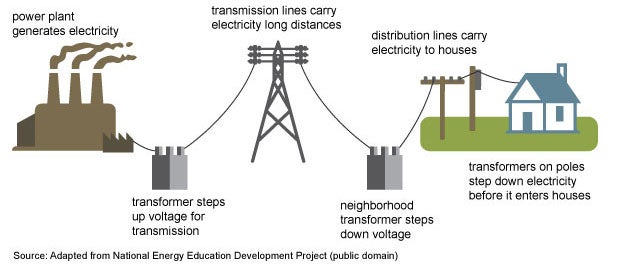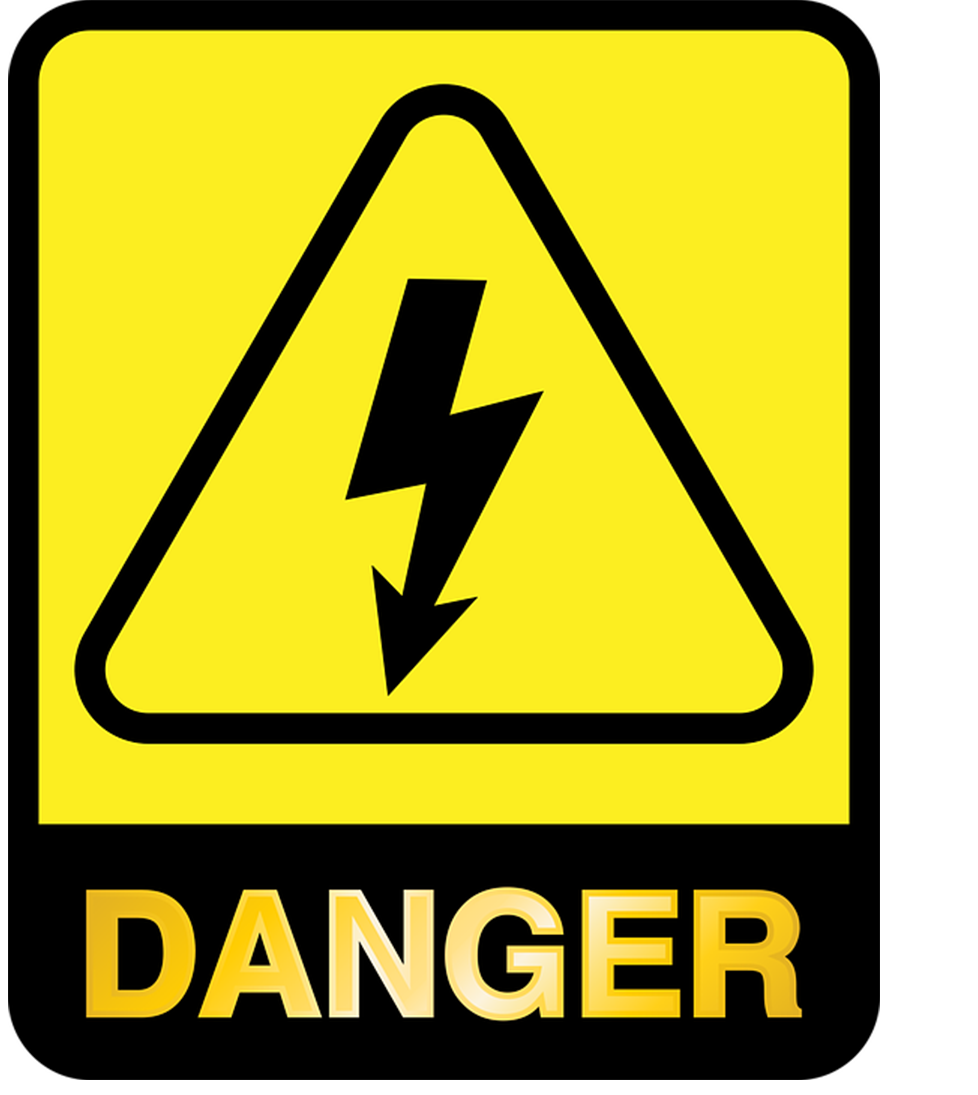Skip to main content
HOW FUEL IS TRANSFORMED INTO ELECTRICITY

1. Fuel generates energy.
- Electric power generation starts with a source of fuel that can be harnessed to create energy.
- Fuel types include fossil (coal, oil, natural gas), nuclear, and renewable (such as solar power, wind power, falling water for hydro generation, and even garbage and agricultural waste products). Renewables also reduce emissions during power generation.
2. Turbine and generator convert energy.
- In a power plant, the turbine and generator convert mechanical energy into electrical energy.
- First the fuel produces steam, gas, or fluid that moves the blades of a turbine, so it revolves fast—more than 3,000 times a minute.
- The spinning turbine is connected to the rod in a generator that turns a large magnet surrounded by coils of copper wire.
3. Generator magnet causes electrons to move and creates electricity.
- The fast-revolving generator magnet causes electrons around the copper coils to move
- The movement of these electrons through a wire is electricity
4. Transformer increases power voltage.
- Thick wires carry the electric current from the generator to a transformer, which increases the voltage of the electric current to 500,000 volts or more, before electricity can be sent to the power grid
5. High-voltage lines carry the current to substations on the power grid.
- From the power plant, the electric current travels on high-voltage transmission lines to an interconnected network of substations throughout your nation, called the grid.
- At each substation, transformers decrease the electric current voltage to levels that can be used by factories, shopping malls, and other customers.
6. Power lines distribute to local transformers.
- Buried or mounted on poles, distribution lines from the grid carry electricity from substations to smaller, local transformers.
- Local transformers, mounted on poles or on concrete pads, further reduce the electric voltage to 110–220 volts, which can be used safely in businesses and homes.
7. Meters and controls for customer power.
- Electricity typically enters your business or home through a meter that measures the amount of electricity you use. There, a control panel distributes power through wires in the walls and then to wall switches and outlets.
- When you switch on or plug in equipment or an appliance, you complete the circuit from the power plant, and electricity operates your appliances and lights.


